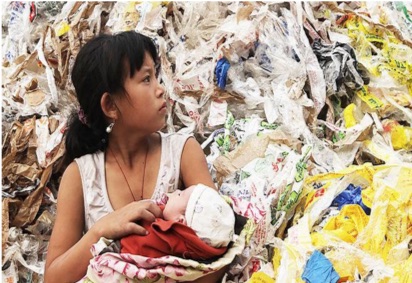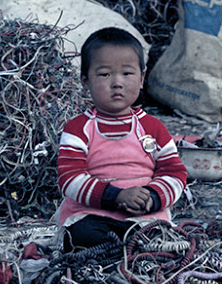An investigative look into the environmental costs of the fast fashion…
The Toxic Price of Leather in India
- Description
- Reviews
- Citation
- Cataloging
View on The Global Environmental Justice site
Curator
This film was selected by Rosemary Carbine, Associate Professor of Religious Studies, Whittier College
Why I selected this film
Although this film has little religious studies content (except for a brief reference to the Hindu caste system and to the Muslim minority in India), I chose it because it explores an unregulated industry’s effects on ecological and public health as well as on Hindu sacred sites and activities. It also offers religious studies students an opportunity to do independent research into how both Hindu and Muslim religious leaders, primarily in marginalized communities, are responding to this industry’s effects.
Teacher's guide
Please see the teacher's guide for maps, background information and suggested subjects, questions and activities.
Synopsis
This short film showcases some of the ecological, social, and public health crises resulting from the thriving leather industry in the leading leather-producing city of Kanpur, located in Uttar Pradesh on the Ganges River in northern India. Although revered as sacred waters and used for both religious rituals as well as meeting daily drinking water and washing needs, the Ganges River ecology and its connected waterways in this region are now highly polluted with toxic waste water from the tanneries. Chromium, lead, and arsenic have polluted the waters and thus poisoned the surrounding farmlands, causing public health crises such as cancers, mental health and child development issues, and skin diseases – with no government regulation or response.
Environmental Justice Focus
The [leather industry’s] success comes at great environmental and social cost. Pollution from the tanneries is destroying the ecology of the local Ganges River and scarring residents in the form of life-threatening illnesses…. [Ganges’] water is channeled onto local farmland, poisoning the soil, entering the food chain, and accumulating in local ecosystems. At greatest risk are the people who work in the tanneries and farmers who work daily with the toxic and highly acidic water. Local residents suffer an array of health troubles as a result of the bioaccumulation of dangerous toxins over decades.
-- Excerpted from the Pulitzer Center website www.pulitzercenter.org/reporting/india-toxic-price-leather
Related Films
Reveals the unsafe conditions in which adults and children alike toil,…
Death By Design: The Dirty Secret of our Digital Addiction investigates…




